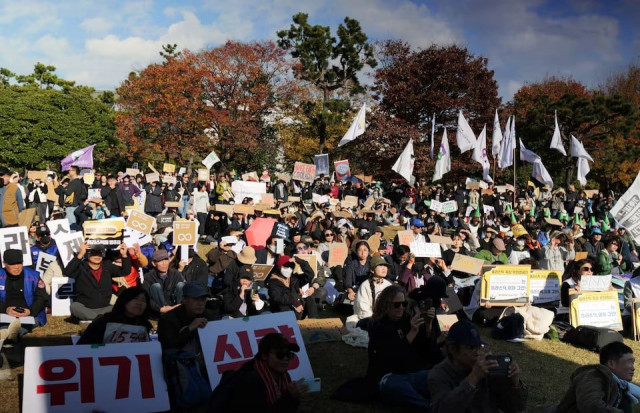Global plastic treaty talks stalled over deep divisions
Over 100 nations support limiting plastic production, but oil-producers focus solely on addressing plastic waste

Countries working towards a global treaty to combat plastic pollution failed to reach a consensus on Monday. While over 100 nations supported limiting plastic production, a small group of oil-producing countries preferred to focus solely on addressing plastic waste.
The fifth session of the UN Intergovernmental Negotiating Committee (INC-5), held in Busan, South Korea, aimed to finalise a legally binding global treaty but ended without agreement. Discussions will resume in a future meeting, referred to as INC 5.2, after key decisions were deferred.
Inger Andersen, executive director of the UN Environment Programme, noted that significant disagreements persist. Key points of contention included setting caps on plastic production, managing hazardous chemicals in plastic, and securing financial support for developing nations to implement the treaty.
A proposal by Panama, supported by over 100 countries, advocated for reducing global plastic production, but another plan omitted any such limits. A draft treaty presented by the session’s chair, Luis Vayas Valdivieso, remained unresolved, with multiple options for the most contentious issues still open for debate.
Juliet Kabera, Rwanda’s Environment Management Authority director general, criticised reliance on voluntary measures, insisting that an effective treaty must be robust and capable of meaningful change.
A small group of petrochemical-producing countries, including Saudi Arabia, resisted efforts to reduce plastic production and were accused of using procedural tactics to stall progress. Saudi Arabian delegate Abdulrahman Al Gwaiz expressed frustration that certain provisions, opposed by his country, had made their way into the draft treaty.
In 2023, the largest producers of primary polymers were China, the United States, India, South Korea, and Saudi Arabia, according to data from Eunomia.
Had an agreement been reached, it could have marked a landmark achievement for environmental protection, akin to the 2015 Paris Agreement. However, the lack of consensus led to delays just days after the contentious conclusion of the COP29 summit in Baku, Azerbaijan. At COP29, countries agreed to mobilise $300 billion annually for climate finance, a sum criticised as inadequate by small island states and developing nations. Similar procedural manoeuvres by Saudi Arabia also hindered progress during those talks.
Some negotiators lamented the absence of voting procedures during the plastic treaty discussions, a restriction established in earlier rounds. Senegal’s delegate, Cheikh Ndiaye Sylla, described this as a strategic error.
Chris Jahn of the International Council of Chemical Associations noted the complexity of addressing global plastic pollution, highlighting the need for continued dialogue to create a comprehensive and practical treaty. Environmental group GAIA expressed scepticism about future negotiations, doubting that the next INC session would succeed where INC-5 faltered.
Plastic production is projected to triple by 2050, with microplastics increasingly found in the air, food, and even human breast milk. A 2023 UN report identified over 3,200 hazardous chemicals in plastics, with women and children particularly vulnerable to their effects.
Despite the setback, many negotiators stressed the urgency of resuming talks. Panama’s delegation head, Juan Carlos Monterrey Gomez, warned that postponing discussions does not delay the crisis, urging immediate action when talks reconvene.



















COMMENTS
Comments are moderated and generally will be posted if they are on-topic and not abusive.
For more information, please see our Comments FAQ